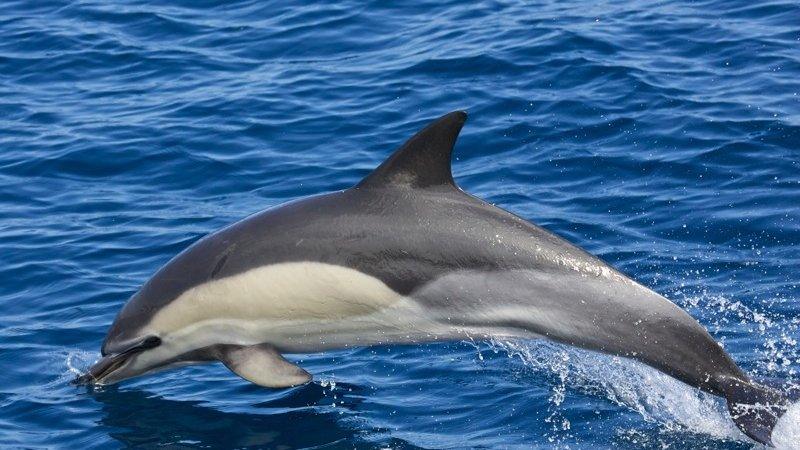Dolphins 'harassed' Cornwall Wildlife Trust says
- Published
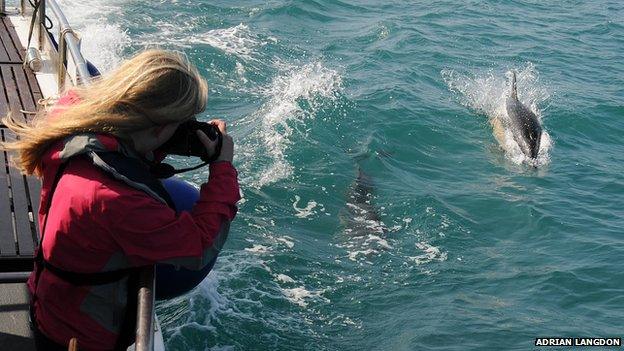
Whales, dolphins and porpoises visit the coast
Dolphins and other marine life are being "repeatedly harassed" off the Cornwall coast, conservationists said.
More than ten reports of "marine wildlife disturbance" were made to Cornwall Wildlife Trust's hotline in the past week, with many in St Ives.
Incidents included bottlenose dolphins being chased by wildlife day trip boats, possibly with their young.
Boat trip companies said they always act responsibly towards the mammals, which "in fact love to chase boats".
The trust said intentionally or recklessly harassing any of these species is illegal, external and can result in distress, serious injuries, amputations or death due to a propeller strike.
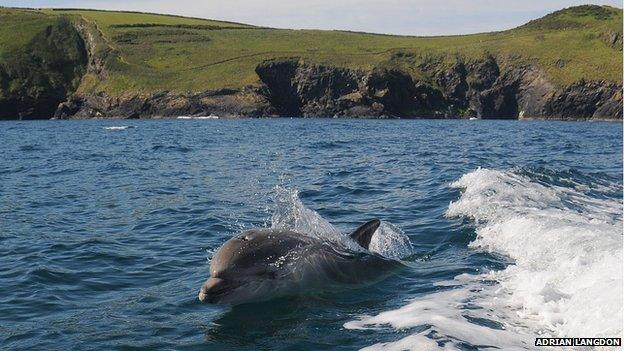
Boats are advised to stay at least 328ft (100m) away from dolphins and switch their engines into neutral if they approach them
Marine conservation officer Abby Crosby said there had also been reports of seals being flushed from their rocks into the sea by kayakers.
"We are lucky enough to get 17 species of whales, dolphins and porpoises as well as basking sharks and turtles visiting the South West.
"The last thing we want to do is to drive these beautiful animals away from our coast and their feeding grounds," she said.
John Paul Bassett, from Tiger Lilly Sea Safaris in St Ives, said all boat trip operators in the area have the "dolphins' safety at heart," and believes some people are wrongly reporting harassment.
"These people who say the day trips are chasing the dolphins obviously haven't got a clue. The dolphins hear the boats and come to the boats and chase the wake," he said.
He added that they always keep a safe distance but "dolphins like playing and interacting with humans".
He said he had seen couple of individual private speedboats that were "not savvy to what the dolphins are doing. It's not that they're trapping them though".
The trust and British Divers Marine Life Rescue (BDMLR) said they are appealing to all water users to familiarise themselves with marine wildlife codes of conduct, external.
- Published12 August 2015
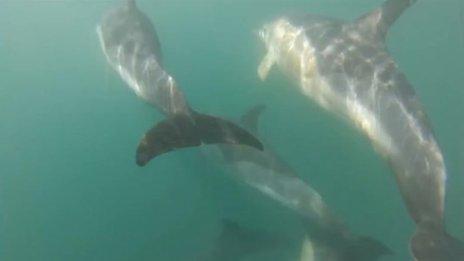
- Published17 April 2015
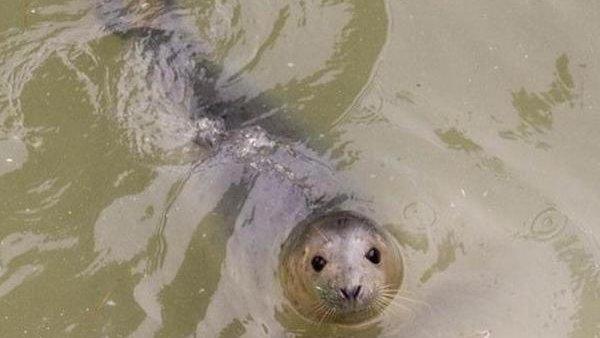
- Published24 January 2014
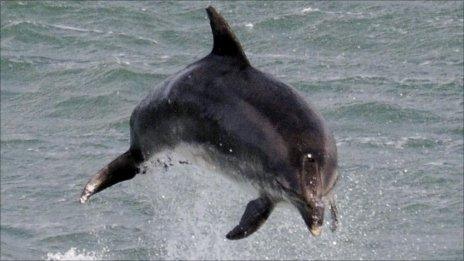
- Published10 January 2014
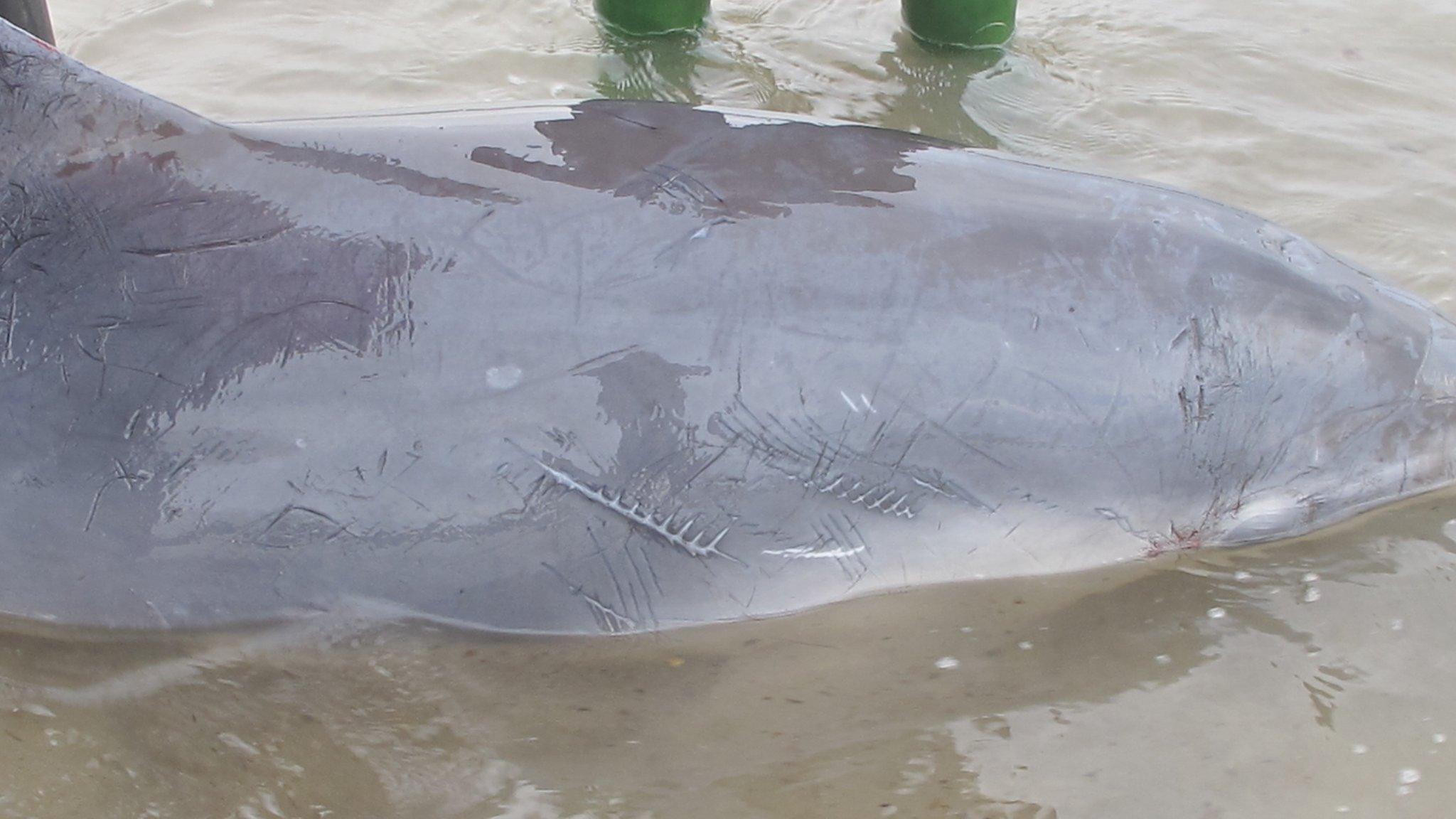
- Published22 July 2013

- Published8 July 2013
